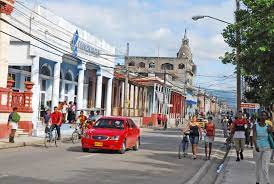 Finding local alternatives for the permanence of residents and the return of those who decided to emigrate, either inside or outside the country, is an imperative, said Antonio Aja Díaz, PhD in Sciences, director of the Center for Demographic Studies (CEDEM) in the University of Havana.
Finding local alternatives for the permanence of residents and the return of those who decided to emigrate, either inside or outside the country, is an imperative, said Antonio Aja Díaz, PhD in Sciences, director of the Center for Demographic Studies (CEDEM) in the University of Havana.
In a keynote speech at the First Demographic Forum in Guantanamo, the researcher said that changing the perspective before the person who decides to emigrate is part of the solution to the marked trend of demographic aging of the population.
The variable, determined by the low birth rate that is also deepening, and the notable increase in population mobility, with a negative migratory balance in all our municipalities, impacts on the depopulation of fields and cities, and the loss of labor resources, especially young people.
More births should always be sought on the basis of respect for the women´s sexual and reproductive rights, strengthening infertility consultations and preparing ourselves to accompany those who decide to reproduce at older ages.
At the same time, he pointed out that pregnancy in adolescence should be reduced, in a province ranking third in fertility at this stage of life, and whose “contributions” to the birth rate this year were 27 percent, the highest top of the last lustrum.
This problem, which also affects infant mortality, since the immaturity of these ages determines several risk factors in pregnancy, including low birth weight and prematurity, is deepened in rural areas, where almost half of births are contributed by adolescents.
It is also urgent to look for alternatives in the face of population aging, such as a more comprehensive care system that takes into account the increase in the elderly living alone, and encourages active old age that contributes to society to the extent possible.
He also said that these variables and problems are vital and must be taken into account every time a development strategy is discussed or approved, where investments will go, our university career plans as well as policies in general.
With the presence of Vice Governor Carlos Martínez Turro, 11 researchers on population, environment and development were presented at the Forum, which took place at the University of Guantanamo, mostly from the province, but also from Santiago de Cuba and Holguín.
The Forum, sponsored by the Demographic Observatory of the University of Guantanamo and the government, preceded the visit to assess the fulfillment of the demographic policy in the province, which also included a tour by nursing homes and other centers of interest.